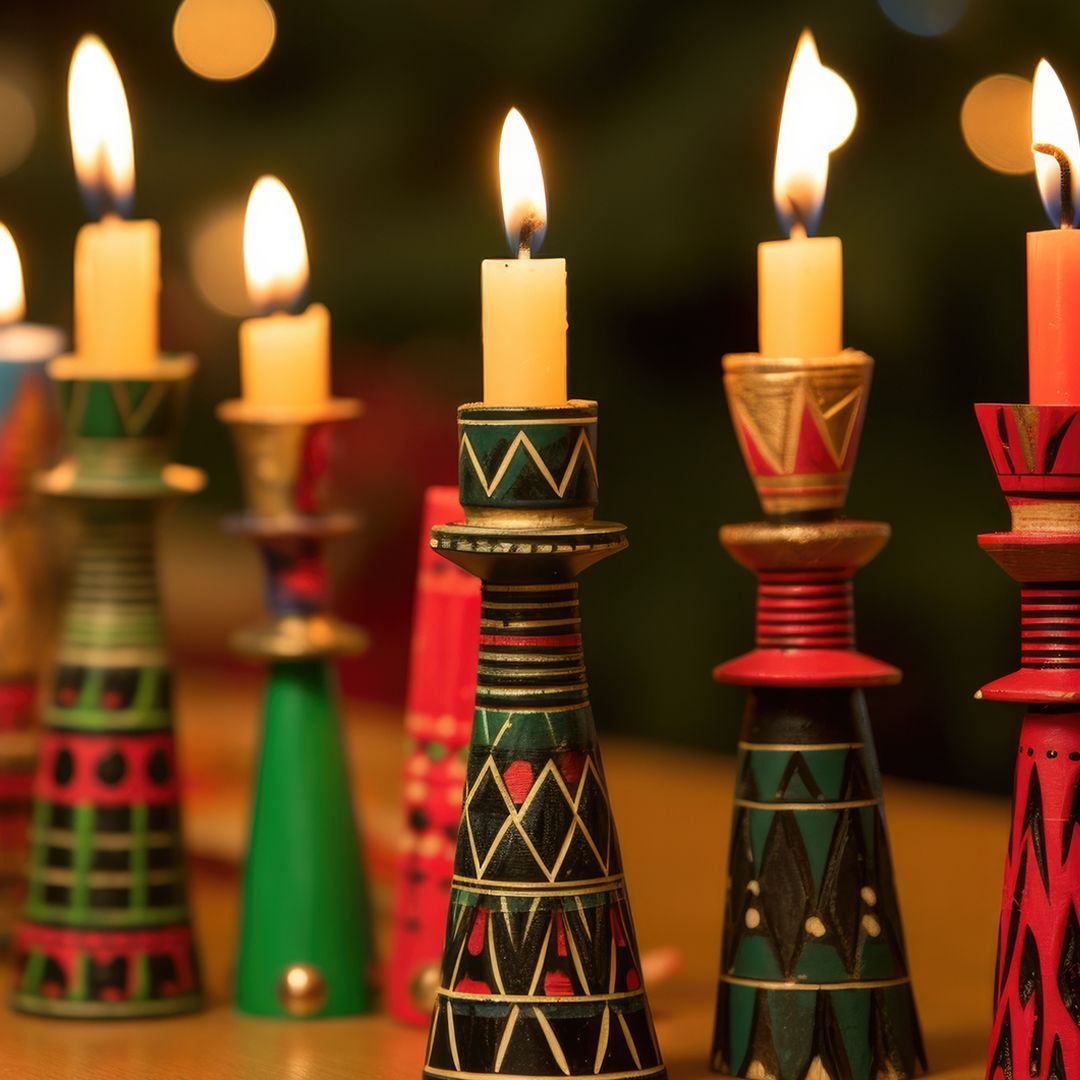
Happy Kwanzaa (December 26 - January 1)
Take a moment to learn more about this cultural celebration, emphasizing family, community and cultural pride.
Kwanzaa is a week-long cultural celebration observed primarily in the United States from December 26 to January 1. Established in 1966 by Dr. Maulana Karenga, a professor of African studies, Kwanzaa was created as a response to the growing need for African Americans to reconnect with their African heritage and cultural roots. The celebration emphasizes family, community, and cultural pride, serving as a time for reflection, unity, and cultural affirmation.
Kwanzaa is grounded in seven principles known as the Nguzo Saba, which translates to "The Seven Principles" in Swahili. Each day of Kwanzaa is dedicated to one of these principles:
- Umoja (Unity): Encouraging togetherness as a family and community.
- Kujichagulia (Self-Determination): Promoting the ability to define and create one’s own identity and destiny.
- Ujima (Collective Work and Responsibility): Highlighting the importance of working together to build and maintain the community.
- Ujamaa (Cooperative Economics): Supporting and building local businesses and economic strength within the community.
- Nia (Purpose): Fostering a sense of purpose within individuals and the community.
- Kuumba (Creativity): Encouraging creativity in the community and striving to leave it more beautiful than inherited.
- Imani (Faith): Instilling faith in the community and in each other.
Celebrations typically include lighting a kinara (a candle holder with seven candles), each representing one of the principles. Families and communities gather to reflect on these values, engage in discussions, and participate in various cultural activities such as music, dance, and storytelling. The kinara is often adorned with decorations that reflect African heritage, and gatherings often include traditional foods to enhance the communal spirit.
Kwanzaa's origins are deeply rooted in African traditions and the African American experience, particularly as a means of fostering a sense of identity. The holiday emphasizes the importance of community and cultural heritage, serving as a reminder of the struggles faced by African Americans and the resilience of the African American culture. It is a time to celebrate achievements, acknowledge history, and reaffirm commitments to family and community.
While Kwanzaa has its roots in the African American community, it is open to anyone who wishes to embrace its principles and celebrate cultural heritage. In recent years, Kwanzaa has also gained wider recognition and been incorporated into the holiday celebrations of diverse groups.
Learn more:
https://www.history.com/topics/holidays/kwanzaa-history
